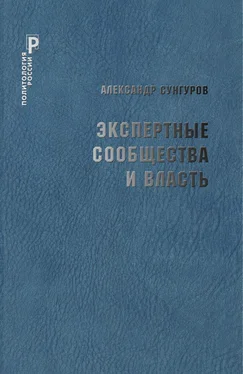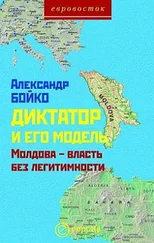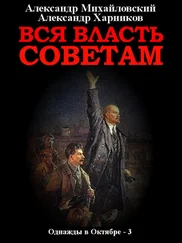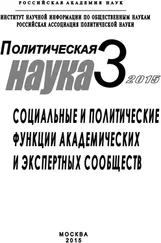Knorr-Cetina K. 1999. Epistemic Cultures: How the Sciences Make Knowledge. Cambridge: Harvard University Press; Dunlop C.A. Epistemic Communities and Two Goals of Delegation: Hormone Growth Promoters in the European Union // Science and Public Policy 2010. № 37 (3). Р. 205–17; Makarychev А. PONARS as a transnational epistemic community: An Insider’s View // Problems of Post-Communism. Vol. 59. № 2. March/April 2012. P. 4350; Loblova О. When Epistemic Communities Fail: Exploring the Mechanism of Policy Influence // The Policy Studies Journal Vol. 46. № 1. 2018. P. 160–189. doi: 10.1111/psj.12213.
«Scientists should be on tap not on top». Цит. по: Rogers M.D. The European Commission and the collection and use of science and technology advice // The Politics of Scientific Advice: Institutional Design for Quality Assurance / еd. by J. Lentsch and P. Weingart. Cambridge, 2011. P. 115.
Сунгуров, 2015; Балаян А.А., Сунгуров А.Ю. Фабрики мысли и экспертные сообщества. СПб., 2016.
Sarewitz D. Looking for quality in the wrong places, or: the technological origin of quality in scientific policy advice // The Politics of Scientific Advice: Institutional Design for Quality Assurance / еd. by J. Lentsch and P. Weingart. Cambridge, 2011. P. 54–70; Sarewitz D. How science makes environmental problems controversies worse // Environmental Science and Policy. 2004. № 7. Р. 385–403.
Oreskes N. Reconciling representation with reality: unitization as example for science and public policy // The Politics of Scientific Advice: Institutional Design for Quality Assurance / еd. by J. Lentsch and P. Weingart. Cambridge, 2011. P. 36–53.
Кун Т. Структура научных революций. М., 1986.
Oreskes N. Science and public policy: what’s proof got to do with it? // Environmental Science & Policy. 2004. № 7. Р. 369–383.
Gieryn T.F. Boundary-work and the Demarcation of Science from Non Science: Strains and Interests in Professional Ideologies of Scientists //American Sociological Review. 1983. Vol. 48. № 6. P. 781–795.
Sabatier P.A. The Acquisition and Utilization of Technical Information by Administrative Agencies // Administrative Science Quarterly. 1978. № 23. Р. 396–417; Weiss C.H. Research and Policy-Making: A Limited Partnership // F. Heller (ed.). The Use and Abuse of Social Science. Sage: London, 1986. P. 214235; Radaelli C.M. The Role of Knowledge in the Policy Process // Journal of European Public Policy. 1995. Vol. 2. № 2. Р. 159–183.
Feldman M.S. and March J.G. Information in Organizations as Signal and Symbol // Administrative Science Quarterly. 1981. № 26. Р. 171–86; March J.G. Decisions and Organizations. Oxford, 1988.
Boswell C. The political functions of expert knowledge: Knowledge and legitimation in European Union Immigration Policy // Journal of European Public Policy. Vol. 15. № 4. May 2008. P. 4721–4788; idem. The Political Uses of Expert Knowledge: Immigration Policy and Social Research, 2009.
Brunsson N. The Organization of Hypocrisy: Talk, Decisions and Actions in Organizations. Copenhagen, 2002.
Hunter A., Boswell C. Comparing the Political Functions of Independent Commissions: the Case of UK Migrant Integration Policy // Journal of Comparative Policy Analysis, 2015. Vol. 17. № 1. Р. 10–25.
Jasanoff Sh. The Fifth Branch: science Advisers as policymakers. Cambridge, MA: Harvard University Press, 1990; idem. States of Knowledge: The Coproduction of Science and Social Order. London, UK: Routledge, 2004; idem. Designs of Nature, 2005.
Idem. Science at the bar: law, science, and technology in America. Cambridge, Massachusetts, and London, England, 1997. P. XV.
Jasanoff Sh. Quality control and peer review in advisory science // The Politics of Scientific Advice: Institutional Design for Quality Assurance / еd. by J. Lentsch and P. Weingart. Cambridge, 2011. P. 19–35.
Guston D.H. Stabilizing the boundary between U.S. politics and science: The role of the Office of Technology Transfer as a boundary organization. Social Studies of Science. 1999. Vol. 29. № 1. Р. 87–112; Guston D.H. Boundary Organizations in Environmental Policy and Science: An Introduction // Science, Technology, & Human Values Vol. 26. № 4. Special Issue: Boundary Organizations in Environmental Policy and Science. Autumn, 2001. P. 399–408.
Hellström T., Jacob M. Boundary organizations in science: From discourse to construction. Science and Public Policy. 2003. Vol. 30. № 4. Р. 235–238; Medvetz Т. Murky Power: «Think Tanks» as Boundary Organizations // Rethinking Power in Organizations, Institutions, and Markets Research in the Sociology of Organizations. 2012. Vol. 34. Р. 113–133; Parker J., Crona В. On being all things to all people: Boundary organizations and the contemporary research university // Social Studies of Science April 2012. Vol. 42. № 2. 262289; Hoppe R., Wesselink A., Cairns R. Lost in the problem: the role of boundary organisations in the governance of climate change // Wiley Interdisciplinary Reviews: Climate Change, July/August 2013. Vol. 4. № 4. P. 283–300.
Сунгуров А.Ю. Как возникают политические инновации: «фабрики мысли» и другие институты-медиаторы. М., 2015.
Он же. Организации-посредники в структуре гражданского общества. Некоторые проблемы политической модернизации России // Полис. 1999. № 6. С. 34–48.
Сабатье П., Дженкинкс-Смит Х. Концепция лобби-коалиций: оценка // Публичная политика: от теории к практике / сост. и научн. ред. Н.Ю. Данилова, О.Ю. Гурова, Н.Г. Жидкова. СПб., 2008. С. 94–154.
Jasanoff 2011. P. 21.
Stone D. Capturing the Political Imagination, Think Tanks and the Policy Process, London: Frank Cass, 1996; Stone D., Denham А., Garnett М. (eds.). Think Tanks Across Nations. A Comparative Approach, Manchester: Manchester University Press, 1998; Stone D., Denham А. (eds.). Think Tank Traditions: Policy Analysis Across Nations; Policy Research and the Politics of Ideas, Manchester: Manchester University Press, 2004; Stone D., Maxwell S. (eds). Global Knowledge Networks and International Development. London: Routledge, 2005.
Stone D. Agents of Knowledge.The Oxford Handbook of Governance / ed. by D. Levi-Faur. Oxford, 2012. P. 341–342.
Сабатье П., Дженкинc-Смит Х. Концепция лобби-коалиций: оценка // Публичная политика: от теории к практике. СПб., 2008. С. 94–154.
Feldman M.S., March J.G. Information in Organizations as Signal and Symbol // Administrative Science Quarterly. 1981. Vol. 26. № 171–186; March J.G. Decisions and Organizations. Oxford, 1988.
Читать дальше











